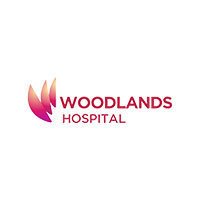Nosebleed, also known as epistaxis, is a condition in which blood flows from one or both nostrils. It can be caused by a variety of factors, such as dry air, injury to the nose, or high blood pressure. Nosebleeds are usually not serious and can be managed with self-care measures, such as applying pressure to the nose and avoiding nose-picking or blowing the nose forcefully.
| Causes | High Blood Pressure, Blood Clotting Disorders, Sinus Infections |
|---|---|
| Remedies | Pinch and Pressure, Vitamin K, Avoid Irritants |
| Preventive Options | Keep the Nasal Passages Moist, Avoid Irritants, Use Nasal Lubricants |
| Treatment Options | Oxymetazoline, Tranexamic Acid, Cauterization |
| Specialist | ENT Specialist |
A nosebleed is a common symptom that occurs when there is bleeding from the blood vessels inside the nose. This can be caused by various factors such as dry air, nose picking, trauma, or a medical condition that affects the blood vessels, such as high blood pressure or a bleeding disorder. Nosebleeds can be classified as anterior nosebleeds, which originate from the front of the nose, or posterior nosebleeds, which originate from the back of the nose and are less common but may be more severe. Treatment options for nosebleeds may include leaning forward and pinching the nostrils to help stop the bleeding, using a nasal spray or applying a nasal pack to help constrict the blood vessels, or in severe cases, cauterization or surgery may be necessary.
Nosebleeds, also known as epistaxis, occur when blood vessels in the nose break and can be accompanied by other symptoms such as:
Nosebleed, also known as epistaxis, is a common condition that involves bleeding from the nose. Here are some types of nosebleeds:
| Types of Nosebleeds | Description |
| Anterior nosebleed | The most common type of nosebleed, which occurs when the blood vessels in the front of the nose rupture, often caused by dry air, picking the nose, or trauma to the nose. |
| Posterior nosebleed | A less common but more severe type of nosebleed, which occurs when an artery in the back of the nose ruptures, often caused by high blood pressure, nasal tumors, or blood-thinning medications. |
| Traumatic nosebleed | A nosebleed caused by an injury to the nose, such as a blow to the face or a fall. |
| Spontaneous nosebleed | A nosebleed that occurs suddenly and without any apparent cause. |
| Hereditary hemorrhagic telangiectasia | A rare genetic condition that causes abnormal blood vessels in the nose and other parts of the body, which can lead to recurrent nosebleeds. |
Nosebleeds, also known as epistaxis, can occur due to various reasons such as dry air, trauma, and high blood pressure. However, in some cases, nosebleeds can also be a symptom or first sign of an underlying medical condition. Here are some medical conditions that can cause nosebleeds
High blood pressure, or hypertension, can cause nosebleeds as it increases the pressure in blood vessels, making them more prone to bursting. Chronic high blood pressure can also damage blood vessels in the nose, leading to frequent nosebleeds. Treatment for high blood pressure can help prevent nosebleeds.
Blood clotting disorders like hemophilia and von Willebrand disease can cause frequent and prolonged nosebleeds. These conditions affect the body's ability to form blood clots, leading to excessive bleeding. Treatment for blood clotting disorders typically involves clotting factor replacement therapy.
Sinus infections, also known as sinusitis, can cause nosebleeds due to inflammation and irritation of the nasal passages. Chronic sinus infections can also damage the blood vessels in the nose, leading to frequent nosebleeds. Treatment for sinus infections typically involves antibiotics and decongestants.
Nasal tumors, such as nasopharyngeal carcinoma and nasal polyps, can cause nosebleeds. These tumors can grow in the nasal passages, causing irritation and damage to blood vessels. Treatment for nasal tumors typically involves surgery, radiation therapy, or chemotherapy.
Liver disease, such as cirrhosis or hepatitis, can cause nosebleeds due to increased pressure in blood vessels in the liver. This increased pressure can cause blood to back up into the veins of the esophagus, leading to bleeding in the nasal passages. Treatment for liver disease typically involves lifestyle changes, medications, and in severe cases, a liver transplant.
Leukemia, a type of blood cancer, can cause nosebleeds due to low platelet counts. Platelets are necessary for blood clotting, and low platelet counts can cause excessive bleeding. Treatment for leukemia typically involves chemotherapy, radiation therapy, and bone marrow transplantation.
Nosebleed, also known as epistaxis, can have several underlying causes, ranging from dry air to a more serious condition. Your doctor will perform a medical history and physical examination to determine the underlying cause of your nosebleed. Diagnostic tests may include:
Nosebleeds, also known as epistaxis, can be treated with medications to help stop the bleeding and prevent future occurrences. Here are five drugs commonly used in the treatment of nosebleeds
Oxymetazoline is a decongestant that constricts blood vessels in the nose, reducing inflammation and bleeding. It is available over-the-counter as a nasal spray and is typically used for short-term treatment of nosebleeds. However, prolonged use of oxymetazoline can cause rebound congestion and worsen nosebleeds.
Tranexamic acid is a medication that helps blood clot and is commonly used to treat heavy menstrual bleeding. It can also be used to treat nosebleeds by promoting clotting in the blood vessels of the nose. It is available in both oral and topical forms and is typically used for short-term treatment of nosebleeds.
Silver nitrate is a chemical that cauterizes blood vessels, helping to stop nosebleeds. It is applied directly to the bleeding area of the nose using a cotton swab or applicator. While silver nitrate is effective at stopping nosebleeds, it can cause irritation and burning in the nasal passages.
Estrogen is a hormone that can be used to treat nosebleeds in women caused by hormonal imbalances or changes, such as during pregnancy or menopause. Estrogen helps to stabilize blood vessels in the nose, reducing the risk of bleeding. However, estrogen therapy has several potential side effects and should be used only under the supervision of a healthcare provider.
Desmopressin is a synthetic hormone that promotes the release of von Willebrand factor, a protein that helps with blood clotting. It is commonly used to treat bleeding disorders like von Willebrand disease, but it can also be used to treat nosebleeds. Desmopressin is available in both nasal spray and injection forms and is typically used for short-term treatment of nosebleeds.
While most nosebleeds can be treated effectively with medications or other nonsurgical methods, some may require surgical intervention. In addition, there are several home remedies that can be used to help manage nosebleeds. Here are some details on each of these options
Cauterization is a common surgical procedure for treating severe and recurrent nosebleeds. During this procedure, a healthcare provider uses a hot or cold instrument to cauterize the blood vessels in the nose, causing them to seal shut and stop bleeding. This can be done under local anesthesia in a healthcare provider's office, and is typically a quick and effective procedure.
In some cases, nosebleeds may be severe enough to require nasal packing. This involves inserting a gauze or other material into the nasal passages to apply pressure to the blood vessels and stop the bleeding. Nasal packing is typically done in a healthcare provider's office or emergency department, and may be left in place for several days to a week until the bleeding has stopped.
One of the simplest and most effective home remedies for nosebleeds is to apply pressure to the nose. Pinch the nostrils together and apply gentle pressure for at least 10-15 minutes, breathing through your mouth. This can help to stop the bleeding by applying pressure to the blood vessels and allowing them to seal shut.
Dry air can irritate the nasal passages and lead to nosebleeds. Keeping the nasal passages moist can help to prevent and treat nosebleeds. This can be done by using a humidifier in your home, using saline nasal sprays, or even placing a wet washcloth over your nose and mouth to breathe through.
Vitamin K is an essential nutrient that helps with blood clotting. Increasing your intake of vitamin K-rich foods such as leafy greens, broccoli, and cabbage may help to prevent and treat nosebleeds.
Avoiding irritants such as tobacco smoke, dry air, and chemical fumes can help to prevent nosebleeds. If you do experience a nosebleed, avoid blowing your nose or picking at the scab, as this can further irritate the nasal passages and lead to more bleeding.
Nosebleeds, or epistaxis, can be a common and often alarming condition. While they are typically not serious and can be treated with medications or other nonsurgical methods, there are several ways to help prevent nosebleeds from occurring in the first place. Here are some tips and strategies for preventing nosebleeds
Dry air can irritate the nasal passages and lead to nosebleeds. Keeping the nasal passages moist can help to prevent nosebleeds. This can be done by using a humidifier in your home, using saline nasal sprays, or even placing a wet washcloth over your nose and mouth to breathe through.
Irritants such as tobacco smoke, dry air, and chemical fumes can irritate the nasal passages and lead to nosebleeds. Avoiding these irritants can help to prevent nosebleeds. Additionally, using protective gear such as masks or respirators can help to prevent exposure to irritants in the workplace or other environments.
Nasal lubricants, such as petroleum jelly or nasal saline gel, can help to moisturize and protect the nasal passages, reducing the risk of nosebleeds. These can be applied with a clean cotton swab or finger.
Trauma to the nose, such as from sports injuries or accidents, can lead to nosebleeds. Avoiding activities that may cause trauma to the nose, or using protective gear such as helmets or face guards, can help to prevent nosebleeds.
High blood pressure can increase the risk of nosebleeds. Maintaining a healthy blood pressure through diet, exercise, and medication if necessary can help to prevent nosebleeds.
Picking the nose can irritate the nasal passages and lead to nosebleeds. Avoid picking the nose, and if necessary, use a saline nasal spray or other means to clear the nasal passages.
Allergies can cause inflammation and irritation in the nasal passages, leading to nosebleeds. Managing allergies through medication or other means can help to prevent nosebleeds.
A nosebleed is a common symptom that can be caused by a variety of factors, such as dry air, injury, or underlying medical conditions. While it may be a temporary and harmless sensation in some cases, there are certain warning signs and symptoms that may indicate a more serious underlying condition. It is important to be aware of these signs and symptoms in order to determine when medical attention is necessary.
Here are some warning signs and symptoms that may indicate a more serious condition and warrant a visit to a doctor if you have a nosebleed:
If you are experiencing any of these symptoms in addition to a nosebleed, it is important to seek medical attention right away. These symptoms may indicate a serious underlying condition, such as high blood pressure, blood clotting disorders, or a head injury. In some cases, prompt medical treatment can be life-saving.
If you have nosebleed and are concerned about your health, it is important to seek immediate medical attention from a qualified nosebleed doctor. A doctor specializing in treating nosebleed, such as a ENT Specialist, would be the right health professional to consult.
Here is a list of Top verified doctors for nosebleed. You can book an appointment with one to start your nosebleed treatment today.

Manipal Hospitals, Dhakuria, Kolkata
Rs. 1,000 Consult Fees

Max Super Speciality Hospital, Shalimar Bagh, Delhi NCR
Rs. 800 Consult Fees

Jaslok Hospital, Mumbai
Rs. 1,500 Consult Fees
A hospital can provide various services to help diagnose and treat your nosebleed. If you are experiencing nosebleed In that case, it is important to visit a nosebleed hospital for a proper diagnosis and treatment plan.
Check a list of Top Hospitals for nosebleed treatment.
Multi Speciality Hospital
Established in 1918
🛌345 Beds
.png)
Multi Speciality Hospital
Established in 1940
🛌220 Beds

Multi Speciality Hospital
Established in 1947
🛌230 Beds
Frequently asked questions and answers about nosebleed.
Can nose bleed happen for no reason?
Yes, nosebleeds can happen for no apparent reason, but they are usually not serious and can be easily treated at home with some simple first aid measures.
When should I be worried about a nosebleed?
You should be worried about a nosebleed if it doesn't stop after 20 minutes of pressure, if it is accompanied by severe headache or dizziness, or if it is the result of a head injury.
What is the first aid of nose bleed?
The first aid for a nosebleed includes sitting down, leaning forward slightly, pinching the nostrils together with thumb and index finger for 10-15 minutes, and applying an ice pack to the bridge of the nose.
Reviews by patients on different.
K .Parsad
Manipal Hospital
Dr. Anuj Goel has been a wonderful experience for me. He is a cheerful, lively, and upbeat individual. He provides us with actual, actionable, and concrete solutions to our situation. I am quite comfortable discussing any topic connected to life with you. Both mam and sir are the most nicest people I've ever encountered. I am completely satisfied.
Shikha Jain
CARE Hospital
Dr. has been a wonderful experience for me. He is a cheerful, lively, and upbeat individual. He provides us with actual, actionable, and concrete solutions to our situation. I am quite comfortable discussing any topic connected to life with you. Both mam and sir are the most nicest people I've ever encountered. I am completely satisfied.
P.Harshith Rao
Manipal Hospital
My time with Dr. has been excellent. He is a cheerful, lively, and upbeat individual. He provides us with actual, actionable, and concrete solutions to our situation. I am quite comfortable discussing any topic connected to life with you. Both mam and sir are the most nicest people I've ever encountered. I am completely satisfied.
Credihealth is an online healthcare portal for all your hospital appointments, diagnostic test bookings, ordering medications, or homecare services. If you have any inquiries, our in-house medical experts can help solve them and guide you to the best specialist in the India.